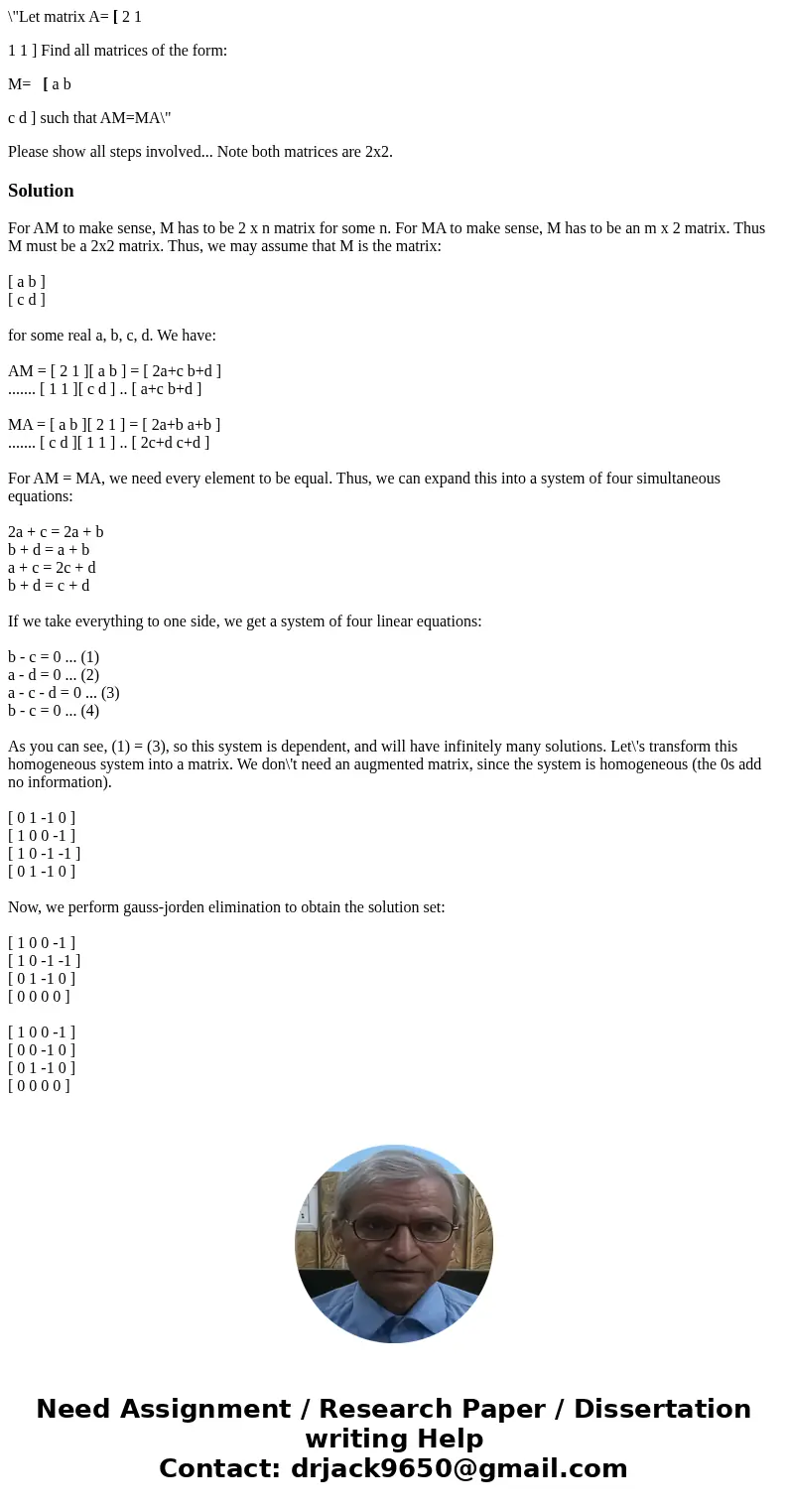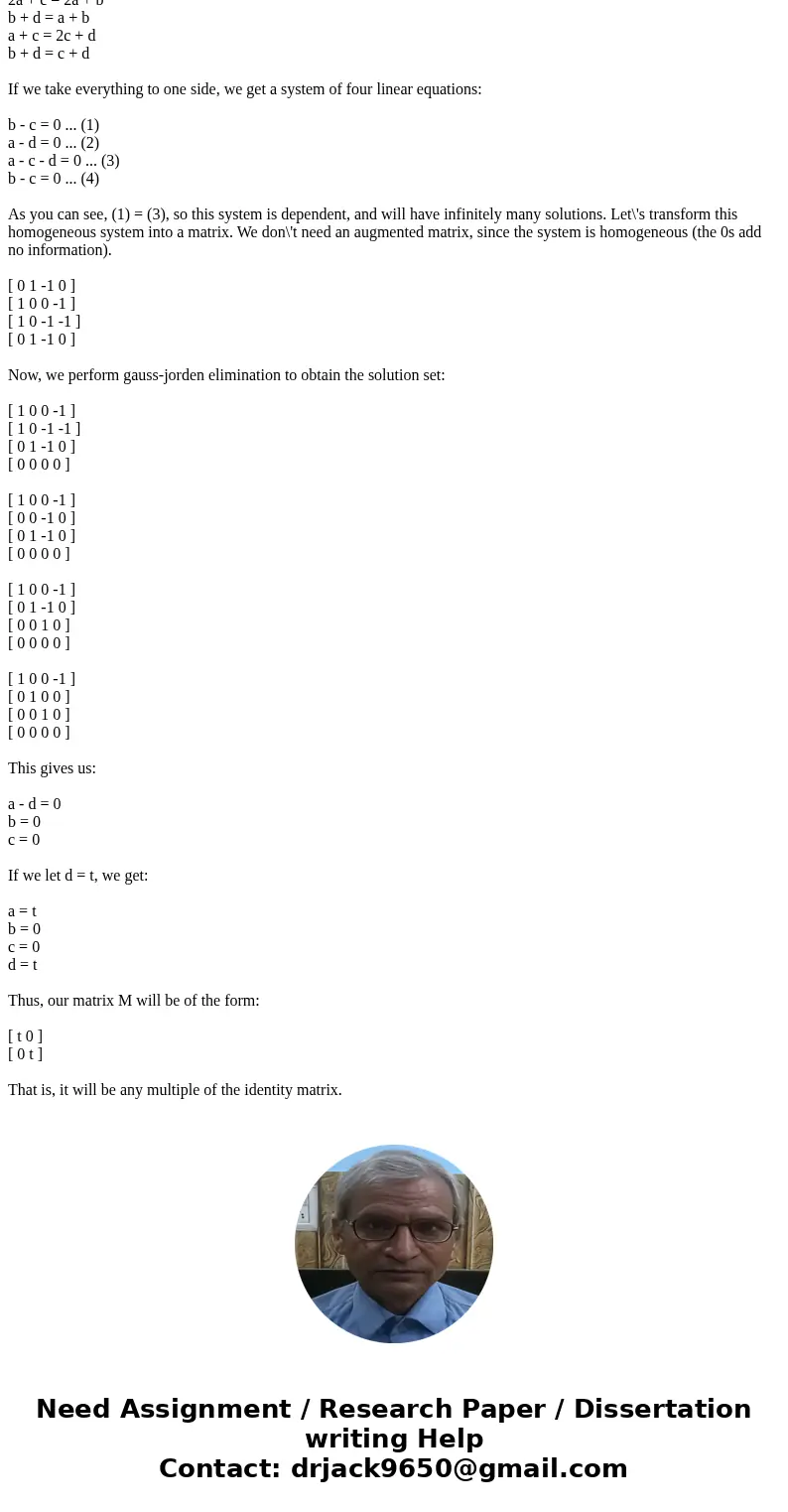Let matrix A 2 1 1 1 Find all matrices of the form M a b
\"Let matrix A= [ 2 1
1 1 ] Find all matrices of the form:
M= [ a b
c d ] such that AM=MA\"
Please show all steps involved... Note both matrices are 2x2.
Solution
For AM to make sense, M has to be 2 x n matrix for some n. For MA to make sense, M has to be an m x 2 matrix. Thus M must be a 2x2 matrix. Thus, we may assume that M is the matrix:
[ a b ]
[ c d ]
for some real a, b, c, d. We have:
AM = [ 2 1 ][ a b ] = [ 2a+c b+d ]
....... [ 1 1 ][ c d ] .. [ a+c b+d ]
MA = [ a b ][ 2 1 ] = [ 2a+b a+b ]
....... [ c d ][ 1 1 ] .. [ 2c+d c+d ]
For AM = MA, we need every element to be equal. Thus, we can expand this into a system of four simultaneous equations:
2a + c = 2a + b
b + d = a + b
a + c = 2c + d
b + d = c + d
If we take everything to one side, we get a system of four linear equations:
b - c = 0 ... (1)
a - d = 0 ... (2)
a - c - d = 0 ... (3)
b - c = 0 ... (4)
As you can see, (1) = (3), so this system is dependent, and will have infinitely many solutions. Let\'s transform this homogeneous system into a matrix. We don\'t need an augmented matrix, since the system is homogeneous (the 0s add no information).
[ 0 1 -1 0 ]
[ 1 0 0 -1 ]
[ 1 0 -1 -1 ]
[ 0 1 -1 0 ]
Now, we perform gauss-jorden elimination to obtain the solution set:
[ 1 0 0 -1 ]
[ 1 0 -1 -1 ]
[ 0 1 -1 0 ]
[ 0 0 0 0 ]
[ 1 0 0 -1 ]
[ 0 0 -1 0 ]
[ 0 1 -1 0 ]
[ 0 0 0 0 ]
[ 1 0 0 -1 ]
[ 0 1 -1 0 ]
[ 0 0 1 0 ]
[ 0 0 0 0 ]
[ 1 0 0 -1 ]
[ 0 1 0 0 ]
[ 0 0 1 0 ]
[ 0 0 0 0 ]
This gives us:
a - d = 0
b = 0
c = 0
If we let d = t, we get:
a = t
b = 0
c = 0
d = t
Thus, our matrix M will be of the form:
[ t 0 ]
[ 0 t ]
That is, it will be any multiple of the identity matrix.


 Homework Sourse
Homework Sourse